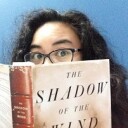
Lianne
Written on May 7, 2016
Unfortunately the book was a chore to read :( I appreciated the portrayal of life in the area at the time, the culture in which these characters live in, as well as the descriptions of the countryside, all of which really give a sense of place and time to the story. But that’s as far as the positive elements go in terms of my reading experience: I thought it was a boring read. I was not invested in any of the characters, which was unfortunate because the struggle between these two cousins for an estate was interesting enough.
While I had to read this up online to get a sense of the finer details of this novel, the themes are pretty cut and dry and goes back to the state of Venezuela at the time that the book was written. Perhaps I found this book difficult because I wasn’t wholly familiar with Venezuelan history save for maybe the last 50 years or so to truly appreciate the social struggles that the book was highlighting–that of progress and old traditions, of the problems it faced–but I appreciate what the author was trying to convey here and trying to make sense of the times he lived in. However the lines might have been drawn a little too neatly to be wholly appreciated: Dona Barbara is portrayed as wholly evil in her manipulativeness and cunning, barbaric ways whereas Luzardo is shown as gentle and enlightened. That and I didn’t quite understand why the book was compared to Gustave Flaubert’s Madame Bovary in that review quote other than the perhaps the fact that both Madame Bovary and Dona Barbara were trying to get things they wanted but couldn’t get?
So overall, I didn’t really enjoy reading Dona Barbar and skimmed most of it just to find out what happened to the characters exactly. Some people have pointed out that perhaps the translation was an issue, and maybe it was, but the story didn't grab me as much as I thought it would.
